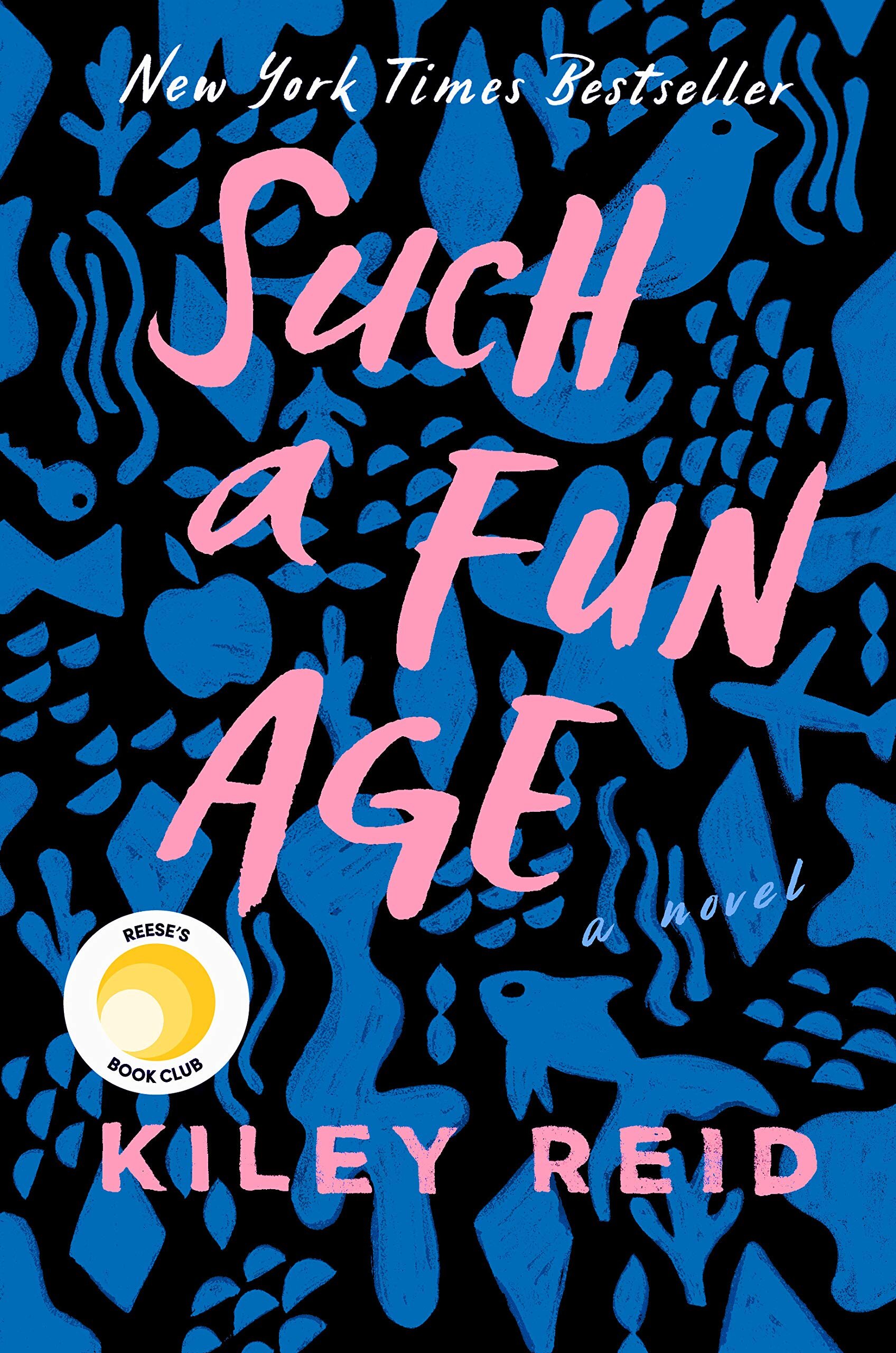Exploring New Perspectives on Race in An Effort to Do Better | Sally Anne’s Top Picks
Written by Sally Anne Groomes
I started college as a political science major eager to make an impact on the world through politics or law. However, that quickly changed during my first literature course thanks to a passionate professor who taught me that books are more than simply words on a page. Great literature does not merely entertain, it can change hearts, develop imaginative empathy in readers, and give a much needed voice to the marginalized and oppressed. After the heartbreaking events of the past two weeks, I struggle to find the correct way to create and hold space for hurting black communities across our nation. This is not my story to narrate and control, yet how do I show love and support and DO BETTER? The following books have helped to better educate both my mind and my heart and inform my subsequent actions.
Non-Fiction
The first and most formative text that I have ever read on racism is White Fragility: Why It’s So Hard for White People to Talk About Racism by Robin DiAngelo. If you can only read one of these books, PLEASE read this one. I wish that it would be required reading for every American. DiAngelo provides a cogent analysis of racism and actionable information on what whites in America can do about it. She argues: “While it isn’t comfortable for most whites to talk about racism, we must do so if we want to challenge—rather than protect—racism. To avoid talking about racism can only hold our misinformation in place to prevent us from developing the necessary skills and perspectives to challenge the status quo” (DiAngelo, p. 86). This book sheds light on the impossible good/bad binary that we have created surrounding racism that has systematically prevented us from having important discussions about race. DiAngelo subverts this binary by depicting racism as a continuum that we are all on, and shows us how to make necessary strides by gaining awareness of our privilege, our prejudices, our biases, and learning how to listen to and respond correctly to feedback.
The institutionalized racism that DiAngelo discusses on an academic level in her book, is brought to painful realization in The Other Wes Moore: One Name, Two Fates by Wes Moore. Moore tells the true story of two African-American boys named Wes Moore that grow up with strikingly similar disadvantages and struggles, yet he becomes a Rhodes Scholar and the other Wes is imprisoned. Through letters, discussions, and the biographies of both, the reader bears witness to the obstacles still in place for black Americans. However, Moore poignantly demonstrates the small yet powerful influences and intersections that encouraged his success and can also benefit future generations.
My final non-fiction recommendation is Bryan Stevenson’s gripping autobiography, Just Mercy: A Story of Justice and Redemption. Stevenson details his legal struggles against the American criminal justice system as a lawyer defending death row inmates. While an excellent movie adaptation of this book has been recently released, I prefer and recommend taking the time to read Stevenson’s detailed accounts of his work and the people he helped, and those the legal system destroyed before he could save them. I don’t want to be able to push a button at the end of this movie and turn off these stories so quickly. Reading trauma, while exceedingly difficult, makes it harder to turn away and tune it out. We cannot look away from this abuse any longer. “We are implicated when we allow other people to be mistreated. An absence of compassion can corrupt the decency of a community, a state, a nation. Fear and anger can make us vindictive and abusive, unjust and unfair, until we all suffer from the absence of mercy and we condemn ourselves as much as we victimize others…it’s necessary to recognize that we all need mercy, we all need justice, and—perhaps—we all need some measure of unmerited grace” (Stevenson, p. 18).
Fiction
The Nickel Boys by Colson Whitehead won the 2020 Pulitzer Prize for fiction yet, tragically, is based on an actual reform school that closed in 2011. The story focuses on the life of Elwood Curtis, a kind, smart, and inspiring young man that is wrongfully accused and sent to the abusive Nickel Academy. Elwood’s story demonstrates the horrific impact of the prevailing yet deeply erroneous criminalization of black bodies. Despite the backdrop of the 1960s civil rights movement, Elwood’s “schooling” at Nickel hauntingly parallels the trials and tribulations characterized in the nineteenth century slave narratives of Frederick Douglass or Harriet Jacobs. Complete freedom and equality prove to be elusive despite the hundred years of “progress” and legislation. Elwood’s story gives a voice to experiences of trauma, tragedy, and resilience.
In contrast to the previous suggestions, Kiley Reid’s Such a Fun Age initially seems to be a lighter read. However, after reading DiAngelo’s text, it becomes quickly apparent that this contemporary fiction is a quintessential literary iceberg—90% is happening under the surface. Emira Tucker is a vibrant and articulate recent college graduate who, undecided in her career path, takes a local babysitting job. Early in the novel, Emira finds herself in a complicated and racially charged situation when she is falsely accused of kidnapping the white child she babysits for during a trip to the grocery store. While the situation is quickly ameliorated when the father of the child arrives at the store and validates the story, the ripple effects are felt throughout the rest of the novel. Through her painstakingly realistic dialogue, Reid exposes many of the problematic instances of white fragility, unconscious bias, and other subtle yet harmful racist responses. Reading Such a Fun Age forces readers to confront two critical questions underscored by DiAngelo, “How can unease help reveal the unexamined assumptions I have been making? Is it possible that because I am white, there are some racial dynamics that I can’t see?” (p. 14).
The Hate U Give by Angie Thomas is my final fiction recommendation as the themes dealt with in the novel strongly parallel current events. Starr Carter witnesses the death of her close friend at the hands of a policeman and the lack of legal justice causes riots and protests to break out. The magnificence of Thomas’ fiction is that it forces the reader to inhabit the character of Starr and be drawn into her interiority. As a result, the injustices, the struggles, and the triumphs depicted in the novel feel deeply personal and they should. Identity politics is personal. Racism is personal. While Starr’s journey is uniquely her own, we can note the universal connections that bond us all as humans and the crucial importance of doing better, “Sometimes you can do everything right and things will still go wrong. The key is to never stop doing right” (p. 154).
Lately, the truth of Hebrews 13:14 has never felt more true—this fallen world is not our home.
It requires daily pluck not to allow our heartbreak and devastation at the hatred and brokenness in our country to lead us to paralysis and despair. While each of these books explores unique facets of racism in America, I am struck by one common theme that is evident in each and every one—the need for grace. Grace to fight against oppression. Grace to repent. Grace to identify weeds of racism in our own hearts in order to unlearn problematic behaviors, diction, and thought patterns. Grace to forgive ourselves and to forgive others. Grace to reconcile and trust again. As Christians, who get to savor this utterly lavish gift from God on a moment-to-moment basis, now is our chance to be fountains of unmerited grace. I pray that we can flood our communities with grace and become living testaments to Christ’s divine grace poured out for all humanity.
“For we do not have an enduring city here; instead, we seek the one to come.”
Hebrews 13:14
Sally Groomes
Jacksonville, Florida
Sally Anne is a former literature professor who still cannot be caught without a book close at hand. Currently, she is raising her two kids, running many miles, and adventuring around the world one duty station at a time with her husband (a Navy doctor). She loves Jesus with all her heart and is learning daily how to count it all JOY.
Find Sally Anne on Instagram at @sagroomes21
















Coming off more than a year in pandemic mode I feel like we are all deserving of a fantastic tropical vacation. However, regardless of your summer plans, hopefully you will find time to dive into a good book, whether it be next to a beach, a pool or a toddler sprinkler! With that in mind, I have compiled a list of a few of my favorite fiction and nonfiction picks to help you mentally recharge, restore, and relax.